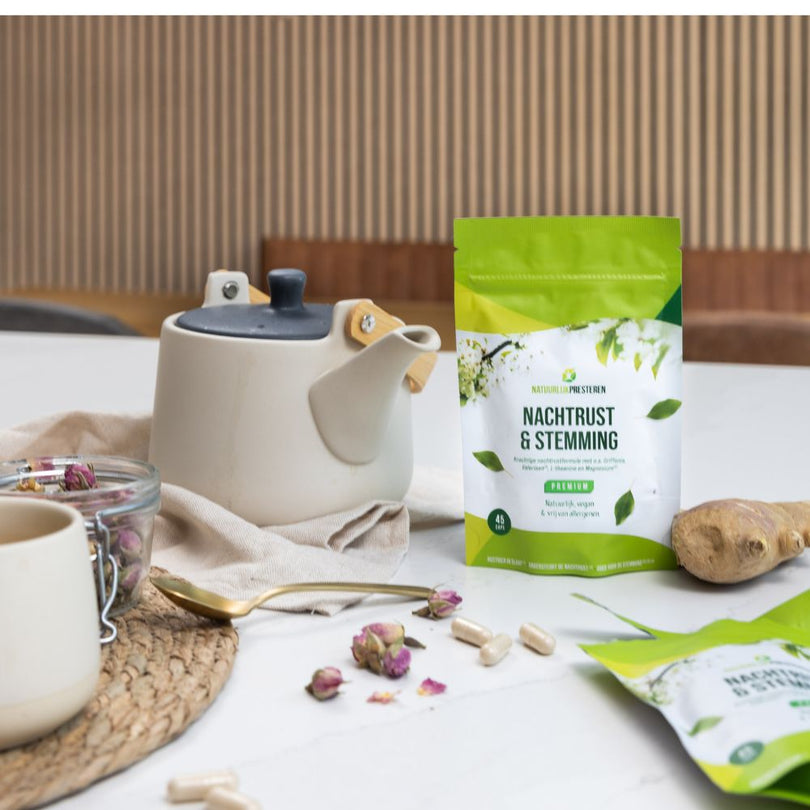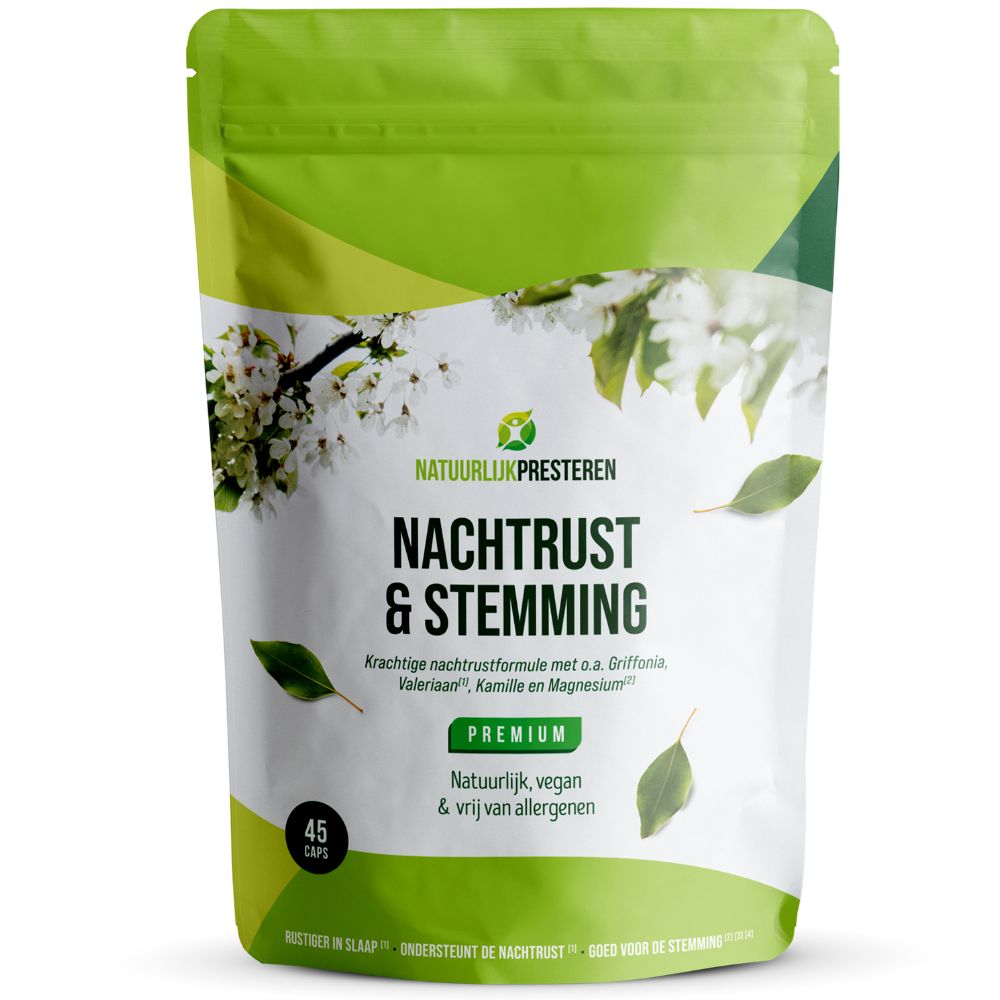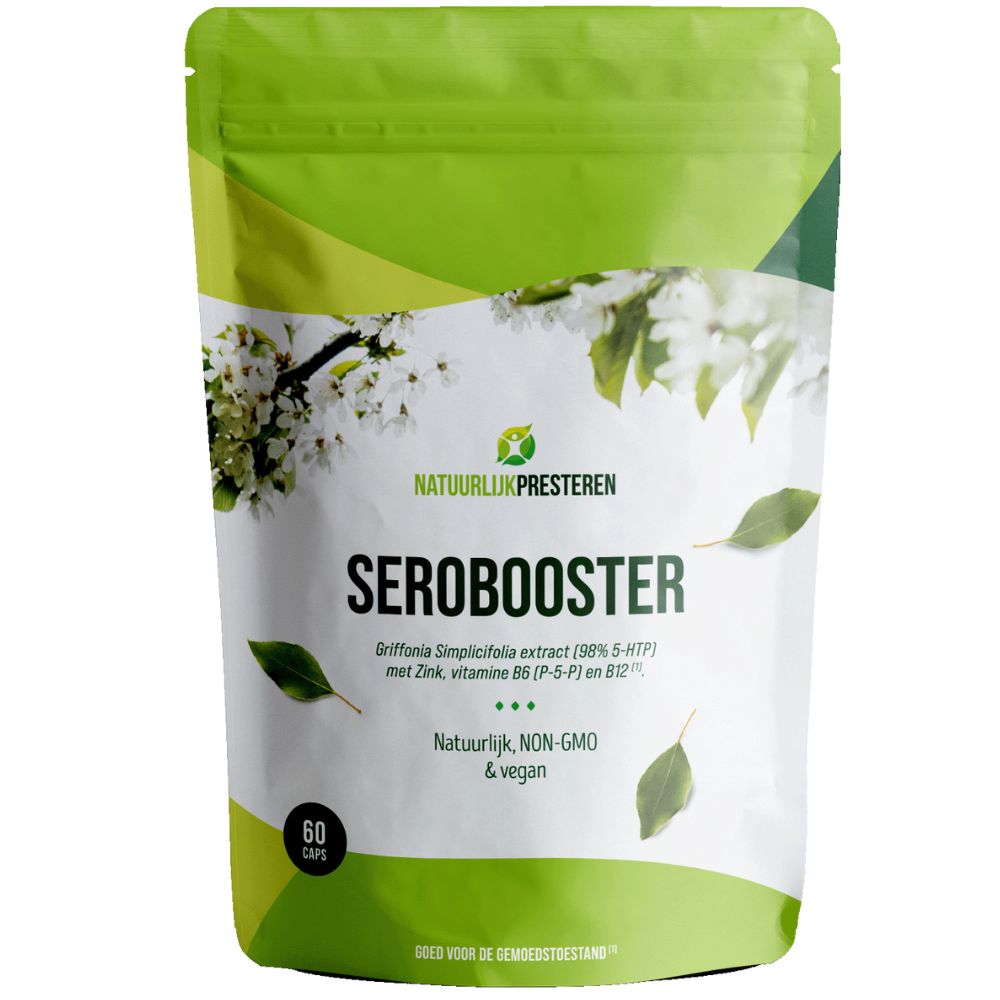What are serotonin boosters?
Serotonin boosters are supplements that support the production of serotonin . Serotonin, also known as the "happiness hormone ," is a neurotransmitter, a substance that transmits messages in your brain and body. It plays an important role in regulating your mood, sleep, and appetite.
Your body produces serotonin itself, so you can't take it directly in a supplement. Instead, you can use supplements that stimulate serotonin production.
In short, when someone talks about a serotonin supplement, they actually mean a serotonin booster.
Serotonin or Serotine?
Many people ask us what the difference is between serotonin and serotonin. We will answer that question very briefly and concisely: serotonin is the same as serotonin , only these names are often used interchangeably. The term "serotine" does not officially exist because it is a misspelling or confusion with the word "serotonin." Serotonin is the correct, scientifically recognized term.
Characteristics of a serotonin deficiency
A serotonin deficiency can manifest itself in symptoms such as a depressed mood, anxiety, sleep problems and difficulty concentrating. This deficiency can occur when serotonin does not function properly or is not produced in sufficient quantities.
Please note: These symptoms can also have a completely different cause! It is not easy to determine a serotonin deficiency. (1)
Our advice
Before you buy a serotonin booster, it is important to first determine if you actually have a deficiency. Consult with a health care provider for a proper diagnosis and use supplements as a complement to a healthy diet and lifestyle.
How is serotonin produced?
Serotonin is produced in your body through a number of steps, which require a number of auxiliary substances.
This is a simplified explanation of how serotonin is produced and what substances are needed:
-
Proteins (with L-tryptophan)
Proteins from your food are broken down in your stomach and intestines into amino acids, the so-called building blocks. These building blocks are then absorbed into the bloodstream in your intestinal wall. L-tryptophan is the amino acid that plays the main role in this process.
-
L-Tryptophan
L-tryptophan is an essential amino acid that your body needs to make serotonin. After being absorbed into your bloodstream, L-tryptophan is transported to the brain. There, it is converted into 5-HTP.
For this conversion, your body needs, among other things, folate (vitamin B11), iron, calcium, and vitamin B3 (niacin) as auxiliary substances.
-
5-HTP
5-HTP is an intermediate product in the process. Now a second conversion is needed, in which 5-HTP is converted into serotonin. The auxiliary substances vitamin B12, B6 and zinc are indispensable here.
-
Serotonin
The 'end product' serotonin is now ready and is stored in the brain cells.
Did you know : The entire process takes place 95% in the intestines and 5% in your brain?! (2)
What is a good serotonin booster
Your body can only produce serotonin if there are sufficient auxiliary substances present.
Effective serotonin pills therefore contain a combination of all these essential substances:
- 5-HTP from a natural source (often from the Griffonia plant). It is the direct precursor of serotonin. Without 5-HTP no serotonin!
- Vitamin B6 plays a key role in the conversion of 5-HTP to serotonin
- Vitamin B12 plays an important role in the production and function of serotonin, although its effect is less direct than that of vitamin B6
- Zinc plays a role in the second step of the serotonin production process, namely the conversion of 5-HTP to serotonin
Our natural serotonin booster contains all these substances in a powerful dose. The perfect support for mood and mood.
Tips to increase serotonin naturally:
1. More often in sunlight
Try to spend at least 15-30 minutes outside in natural light every day, especially in the morning. There is clear evidence that sunlight and daylight stimulate the production of serotonin and are good for your sleep-wake rhythm. (3)
2. Exercise
Aim for at least 30 minutes of moderate to vigorous exercise, such as walking, running, or cycling, at least 3-4 times per week. Studies have shown that both aerobic exercise, such as running and cycling, and strength training can help increase serotonin levels. (4)
3. Tryptophan-rich foods
Eat foods rich in tryptophan, such as turkey, chicken, eggs, nuts, seeds, and tofu. Tryptophan allows your body to make 5-HTP, which is needed to produce serotonin.
4. Relax more often
Practice relaxation techniques regularly, such as yoga, meditation, or deep breathing exercises. Chronic stress can lead to a decrease in serotonin levels in the brain. (5)
5. A carbohydrate-rich meal (unprocessed)
Choose complex, unprocessed carbohydrates like whole grains, oats, and sweet potatoes. In response, your body will produce more insulin, which allows amino acids (tryptophan!) to be better absorbed into the cells. (6)
6. Optimize intestinal flora
Increase your intake of fiber, antioxidants, and healthy fats, and avoid junk food. Eat probiotic foods like yogurt and kefir for healthy gut flora (since a large portion of serotonin is produced in the gut!).
Used sources
- Bamalan, OA, Moore, MJ, & Khalili, YA (2023, July 30). Physiology, serotonin . StatPearls - NCBI Bookshelf. https://www.ncbi.nlm.nih.gov/books/NBK545168/
- Terry, N., & Margolis, K. G. (2016). Serotonergic Mechanisms Regulating the GI Tract: Experimental Evidence and Therapeutic Relevance. Handbook Of Experimental Pharmacology , 319–342.https://doi.org/10.1007/164_2016_103
- Harrison, S. J., Tyrer, A. E., Levitan, R. D., Xu, X., Houle, S., Wilson, A. A., Nobrega, J. N., Rusjan, P. M., & Meyer, J. H. (2015). Light therapy and serotonin transporter binding in the anterior cingulate and prefrontal cortex. Acta Psychiatrica Scandinavica , 132 (5), 379–388. https://doi.org/10.1111/acps.12424
- Basso, J. C., & Suzuki, W. A. (2017). The Effects of Acute Exercise on Mood, Cognition, Neurophysiology, and Neurochemical Pathways: A Review. Brain Plasticity , 2 (2), 127–152. https://doi.org/10.3233/bpl-160040
- Kumar, A., Rinwa, P., Kaur, G., & Machawal, L. (2013). Stress: Neurobiology, consequences and management. Journal Of Pharmacy And Bioallied Sciences , 5 (2), 91. https://doi.org/10.4103/0975-7406.111818
- Jenkins, T., Nguyen, J., Polglaze, K., & Bertrand, P. (2016). Influence of Tryptophan and Serotonin on Mood and Cognition with a Possible Role of the Gut-Brain Axis. Nutrients , 8 (1), 56. https://doi.org/10.3390/nu8010056



